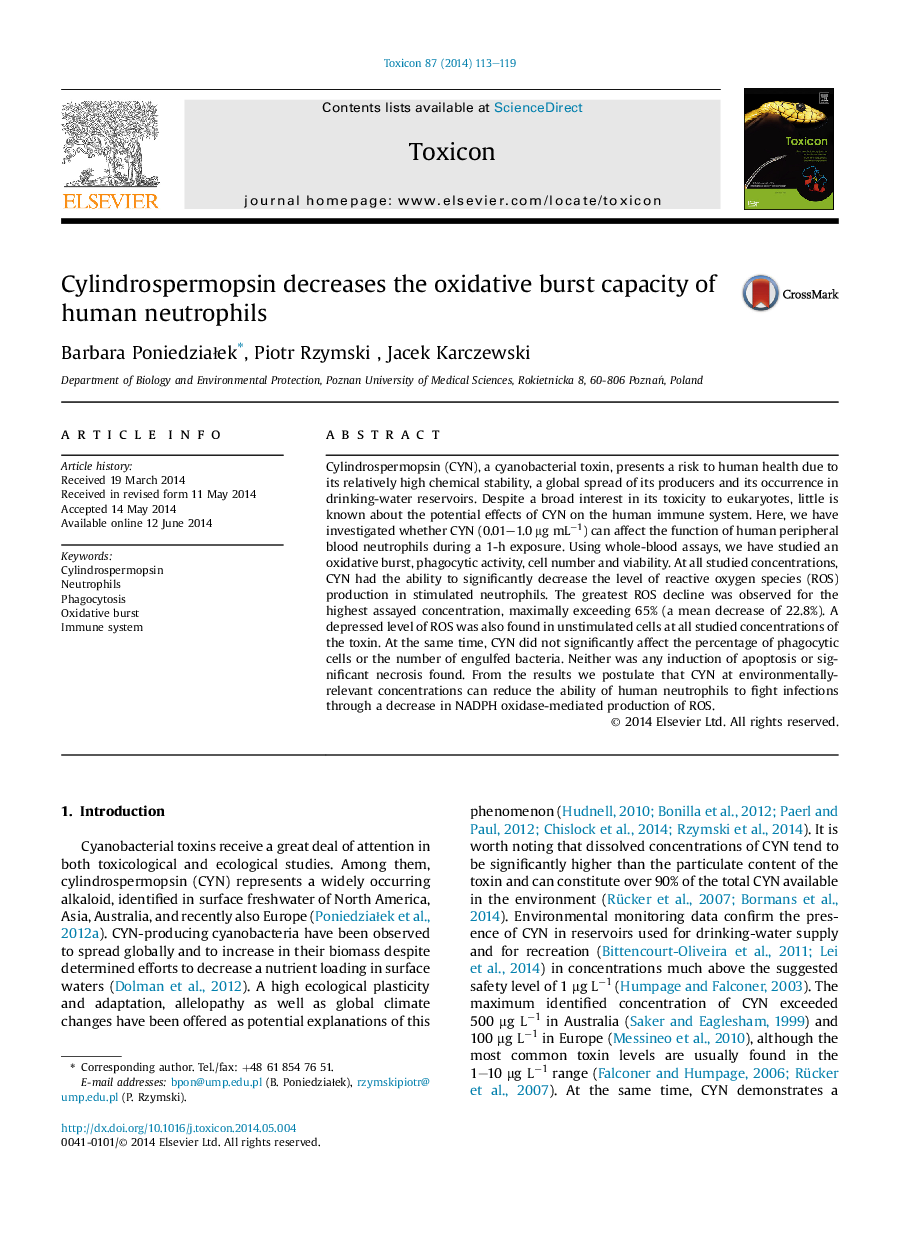| Article ID | Journal | Published Year | Pages | File Type |
|---|---|---|---|---|
| 2064615 | Toxicon | 2014 | 7 Pages |
•Cylindrospermopsin reduced ROS production by human neutrophils.•Cylindrospermopsin did not affect phagocytic activity of human neutrophils.•Exposure to cylindrospermopsin may potentially lead to reduced abilities of human neutrophils.
Cylindrospermopsin (CYN), a cyanobacterial toxin, presents a risk to human health due to its relatively high chemical stability, a global spread of its producers and its occurrence in drinking-water reservoirs. Despite a broad interest in its toxicity to eukaryotes, little is known about the potential effects of CYN on the human immune system. Here, we have investigated whether CYN (0.01–1.0 μg mL−1) can affect the function of human peripheral blood neutrophils during a 1-h exposure. Using whole-blood assays, we have studied an oxidative burst, phagocytic activity, cell number and viability. At all studied concentrations, CYN had the ability to significantly decrease the level of reactive oxygen species (ROS) production in stimulated neutrophils. The greatest ROS decline was observed for the highest assayed concentration, maximally exceeding 65% (a mean decrease of 22.8%). A depressed level of ROS was also found in unstimulated cells at all studied concentrations of the toxin. At the same time, CYN did not significantly affect the percentage of phagocytic cells or the number of engulfed bacteria. Neither was any induction of apoptosis or significant necrosis found. From the results we postulate that CYN at environmentally-relevant concentrations can reduce the ability of human neutrophils to fight infections through a decrease in NADPH oxidase-mediated production of ROS.
